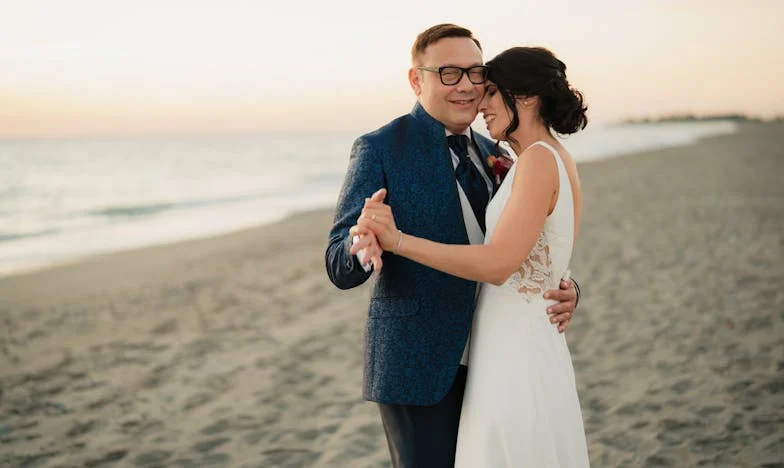The House They Couldn’t Inherit – My Final Act of Defiance
“You know they’re just waiting for you to die, right?”
The words echoed in my kitchen, the sharp smell of burnt coffee lingering as my niece, Jessica, fixed me with her usual, too-bright smile. She sipped her latte, eyes flicking around the room, not missing the silver candlesticks on the mantle or the antique clock in the corner.
I set my mug down, hands trembling slightly, though I tried to hide it. Sixty years old, and still I let myself be rattled by the people who should have loved me most.
“They care about me,” I lied, more to myself than to Jessica. “They’re family.”
Jessica barked a laugh. “Aunt Linda, come on. Mom’s already talking about what color she’ll paint the living room once this place is hers.”
I stared at her, the ache in my chest familiar now—a dull, persistent weight. My husband, Tom, had died six years ago. Since then, the house we built together, brick by brick in a sleepy Ohio suburb, had become less a home and more a prize for the vultures circling my dwindling days.
Jessica left, her perfume lingering long after the slam of the door. The silence pressed in, thick and suffocating. I wandered through the rooms, trailing my fingers along the photographs: Tom, my parents, birthdays, Christmases, all frozen in time. My own face looking back at me, younger, hopeful, before the years carved loneliness into my bones.
I didn’t have children. Tom and I tried, but life had other plans. My sister, Carol, had two: Jessica and her brother, Ryan. They visited, always with an eye on the furniture, the jewelry, the land out back. I was a walking inheritance, not a person.
That night, rain battered the windows as I sat at the kitchen table, a single lamp throwing shadows across the faded wallpaper. My lawyer’s card lay next to my hand. I picked it up, tracing the embossed letters. How many times had I thought about rewriting my will, about leaving everything to someone—or something—that might actually give a damn?
“Why not?” I whispered to the empty room. “Why not take back the ending?”
The next morning I called Mr. Harper, the lawyer Tom and I had used. He sounded surprised to hear from me, but promised to come by that afternoon. I baked blueberry muffins, just the way Tom liked, nerves twisting in my stomach with every tick of the clock.
At two o’clock sharp, Mr. Harper arrived. He wore the same tired suit and carried a battered briefcase. We sat in the living room, the air heavy with unspoken words.
“I want to change my will,” I said. “I want to make sure my family doesn’t get the house.”
He blinked, then nodded, flipping open his notebook. “You have every right, Linda. Do you have someone else in mind?”
I thought of the animal shelter down the road, the one Tom and I donated to every Christmas. The director—a kind woman named Mrs. Avery—always sent handwritten thank-you notes. Or maybe the library, the place I spent so many lonely afternoons after Tom was gone. I wanted this house, our house, to mean something.
“I’m not sure yet,” I admitted. “But not them. They only see dollar signs.”
He understood. He always did.
Days passed, and word got out—maybe through Jessica, maybe Carol. Suddenly, my phone rang off the hook. Carol came by with casseroles and cloying sweetness, her eyes darting to the staircase, the china cabinet, the safe in my bedroom closet. Ryan called from college, asking if I needed help around the house.
My loneliness should have made me grateful, but all I felt was rage. Where were they when I spent Christmas alone, when I fell and sprained my ankle in the garden and had to crawl to the phone? They loved me now because my life was a ticket to their dreams.
One evening, Carol cornered me in the kitchen. “Linda, honey, you know you can trust us. We’re family. You don’t want strangers getting everything you and Tom worked for, do you?”
Her voice trembled, almost convincing. For a second, I saw the little girl who used to beg me to braid her hair. But then I remembered the whispered conversations, the sideways glances, the way she talked about the house as if I were already gone.
“I haven’t decided yet,” I said, my voice steady.
She left in a huff. The silence returned, but this time, it felt different—almost peaceful.
A week later, I visited the animal shelter. The dogs barked, tails wagging, noses pressed to chain-link fences. Mrs. Avery showed me around, her eyes shining as she talked about new kennels, a reading corner for kids, a memorial garden. She didn’t know about the will. She just cared.
I went home and sat in Tom’s old recliner. I could almost hear his voice: “Do what feels right, Lin. Don’t let anyone take that from you.”
The next morning, I called Mr. Harper. “I want the house to go to the shelter. And some money for the library, too. My family—they’ll understand.”
But I knew they wouldn’t. And for the first time in years, I didn’t care.
When Jessica found out, she left a voicemail, furious and shrill. Carol showed up, tears streaming down her face, accusing me of betrayal. I listened, heart pounding, but stood firm. This was my last act of defiance.
Now I sit in this house—the house they couldn’t inherit—surrounded by memories, by love that lingered long after the people faded away. For the first time in years, I feel free.
I wonder, as I watch the sun set through the kitchen window, what would you have done in my place? Is legacy about blood, or about choosing what matters most in the end?
